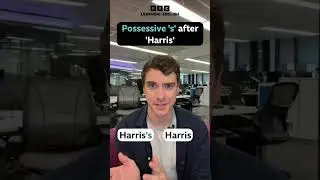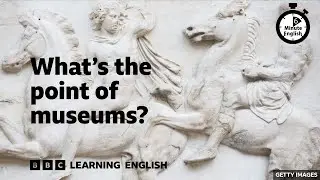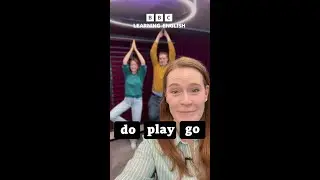Grammar: More advanced learner mistakes - BBC English Masterclass
Improve your English grammar with the BBC. Learning English can be tricky, so we want to help you avoid some mistakes advanced learners may make. Watch this free online English lesson to find out how.
For more, visit our website: http://www.bbc.co.uk/learningenglish/...
More in this series:
Advanced learner mistakes:
https://bit.ly/bbc_advanced_learner_m...
Linking words in English:
https://bit.ly/bbc_linking_words_in_e...
Using 'what' to give emphasis
https://bit.ly/bbc_using_what_to_give...
5 ways to talk about the future:
https://bit.ly/bbc_masterclass_5_ways...
Using 'which' to add information:
https://bit.ly/bbc_masterclass_using_...
Linking words of contrast:
https://bit.ly/bbc_masterclass_linkin...
#learnenglish #bbcmasterclass #englishtips
Transcript:
Hi guys! Dan for BBC Learning English here. In this session, we'll be taking a look at advanced learner mistakes part two. Go and come, take and bring. Are you ready? Cue music.
"Please come here and bring that umbrella. No I can't, I have to go home. I mustn’t forget to take my keys."
Now, these verb pairs seem simple, but in fact many advanced learners still confuse them. In English, the choice depends upon the position of the speaker or listener when the speaker is talking. Come and bring are approaching verbs. They represent movement towards the place where the speaker or listener is when the speaker is talking. For example: "Please come to my house this evening and bring a bottle of Cola. Please come to my house this evening and bring a bottle of Cola."
The speaker is at the house and the listener is approaching and bringing the Cola. But, different example: "Are you still sick? Can I come and see you? I can bring some aspirin." The speaker is moving TO the listener’s position and bringing the aspirin with them.
Go and take are departing verbs. They represent movements away from where the speaker or listener is when the speaker is talking. For example: "John, I always go back to Brazil once a year. I like to take my family gifts." The speaker and the listener are NOT in Brazil. The movement is away from their position and so is the object.
Another example: "John, can you go to the shop for me and buy some bread? Take this money to pay." The speaker and listener are NOT in the shop. The movement is away from their position.
Remember that these verbs can also apply for movements that take place in the past or the future. So, for example: "When I was in hospital, why didn’t you come and visit me?" or, "I think tomorrow night I’ll go to the cinema."
And these verbs can be combined. Check this out: "I think tomorrow night I’ll go to the cinema. I’ve got to take my loyalty card for a discount. Would you like to come? You can bring a friend."
Have you got it? She got it! Now for more information check out bbclearningenglish.com. I've been Dan, you've been awesome. See you next time - let's go to the cinema.































